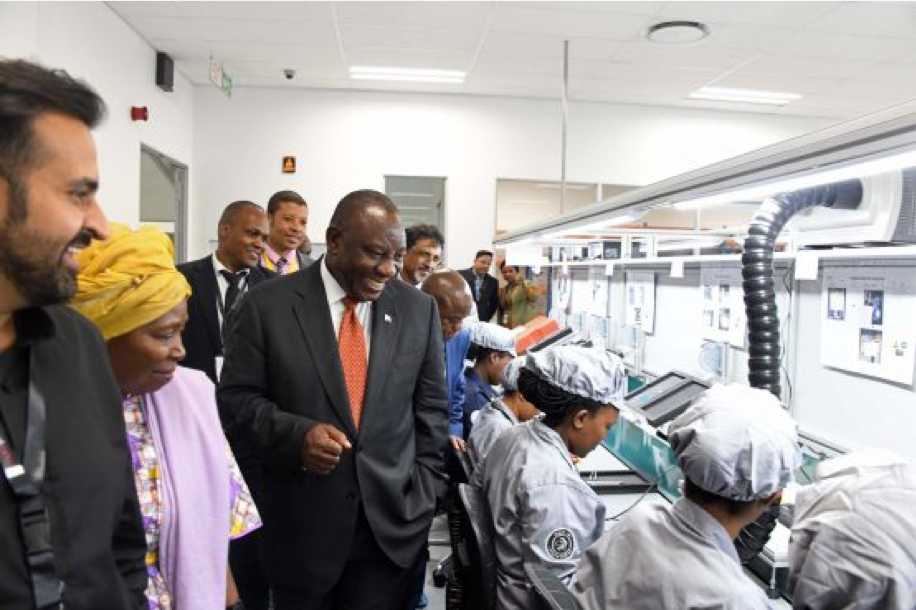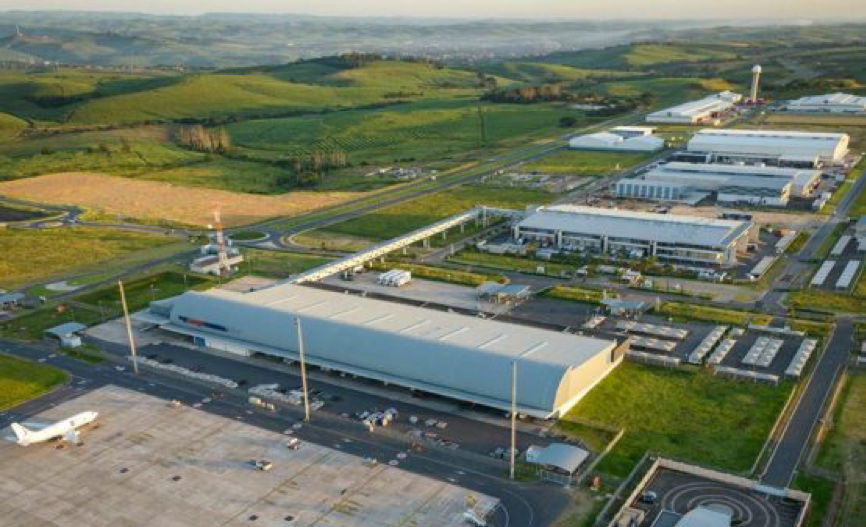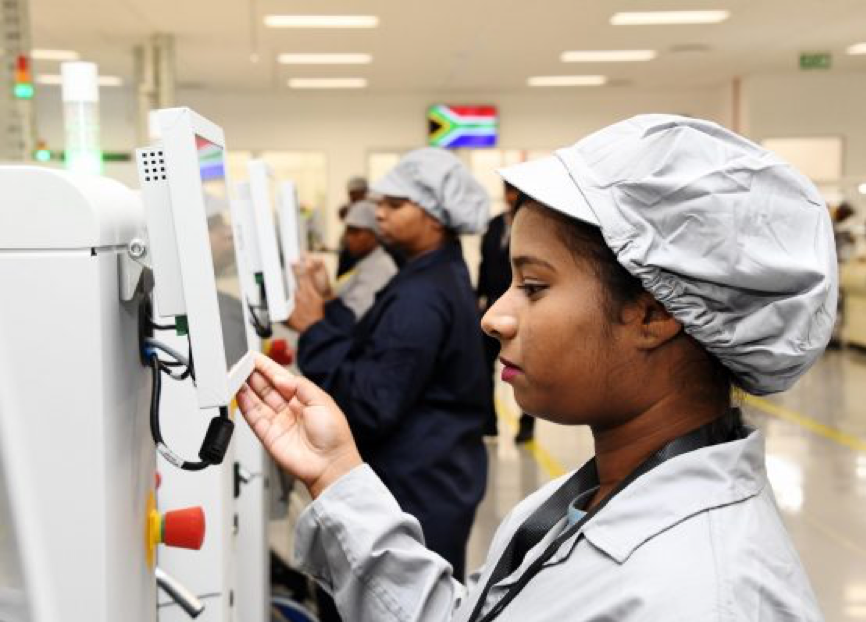Manufacturing and Investment Shaping Africa
The Mara Group, producer of the Mara smartphone, has set up manufacturing facilities in two key strategic countries, Rwanda and South Africa, with a total estimated investment of $100 million.
On the back of political shifts in South Africa, President Cyril Ramaphosa embarked on an investment drive, announced in his state of the nation address in 2018. This was followed up with an investment conference, at which Ashish Thakkar, CEO of Mara Group, announced a $100 million investment in a high-tech manufacturing plant that is now situated in South Africa’s Dube Tradeport (Special Economic Zone). The second manufacturing plant is in Rwanda, and was launched in October 2019.

The investment has been made in the context of strong efforts to attract foreign direct investment into the countries in the form of manufacturing and export ventures. Furthermore, this investment came at a time when Africa had to respond to a critical question about whether the continent has the ability to deliver on megaprojects. This question was part of a robust discussion at the World Economic Forum on Africa 2019 (from 4-6 September 2019, in Cape Town). Other critical questions raised were if Africa and in particular emerging economies can provide a conducive setting for large-scale projects, with decreased risk of delivery, on-time completion and limited need for infrastructure support (the discussion can be viewed here). Notwithstanding the risks, it seems large manufacturing entities such as the Mara Group can find sustainable opportunities.
(For the picture on page 1) Mara Group's CEO Ashish Thakkar (right) giving South African President Cyril Ramaphosa a tour of the manufacturing facility. Image Courtesy: (GCIS)
At the World Economic Forum 2019, President Ramaphosa gave his view that “The future is great, it looks very bright for the African continent, and if there was ever a time when Africa can definitely be said to be on the rise, this is the time.” In June 2019, the UNCTAD World Investment Report 2019 highlighted that though there was a global decline in foreign direct investment, Africa had bucked the trend, with international investment into the continent increasing yearly by 11%. The report gives a breakdown by region, finding that investment into sub-Saharan and Southern Africa climbed by 13% in 2018/2019.
Africa and industrialization
Economists and policymakers see industrialization as key to rapid growth and development in Africa and in particular South Africa. This industrialization (comprising manufacturing, agri-processing and technology) relies on the development of areas that allow for economic growth. One of the developments in the past 10 years in Africa has been Special Economic Zones (SEZs).
The development of SEZs dates as far back as 1978, when China established the Shenzhen Economic Zone in Guangdong province. What was formerly a slow-paced small city is now one of the manufacturing hubs of China, with the focus on exports because of the city being designated an SEZ. Special Economic Zones are set up to drive international investment or foreign direct investment by providing different tax and government benefits to entities that are largely focused on the manufacturing, agriculture or technology sectors. These zones have become international best practice, and as such assist in catalyzing investment into countries. Mara Group’s second manufacturing plant is situated in the Dube Tradeport, Durban, South Africa. The private sector investment totals 3.2 billion rand and has created 12,000 jobs in its first phase.
SEZs provide a foundation and direction for a country’s need for industrialization. They are strategically positioned at points of import and export, by road, air or sea. Hence Dube Tradeport is less than 1 mile from the King Shaka International Airport, is 30-40 minutes away from Durban harbor, and has the relevant high-standard road infrastructure to support trade and development across the city, province, country and the Southern African Development Community region. It was earmarked as an SEZ in 2014, with direct collaboration between the national, provincial, and municipal governments. The second phase of the Dube Tradeport (SEZ) is expected to attract 18 billion rand worth of additional investment.

Aerial view of the Dube TradeZone at the Dube Tradeport. Image sourced: Dube Tradeport website
Manufacturing Africa
Manufacturing is labor-intensive and crucial for exports. A focus on exports is seen as particularly relevant to Africa because “the continent’s domestic markets are small and cannot sustain the high levels of growth required to reduce poverty and inequality” (Bhorat et al 2017). They further indicate that elements including structural transformation and understanding the constraints on manufacturing growth are key for economic growth on the continent.
Mara Group manufactures homemade African smartphones with all critical parts manufactured in Africa, while other companies assemble smartphones on the continent with the parts manufactured and imported from other continents. Mara Group has developed its position in the hope of profits rising thanks to the African Continental Free Trade Agreement (AfCFTA), signed by 54 African Union member states. Mara Group hopes AfCFTA will push growth and investment across Africa, and thus sales of Mara mobile devices.
The company is also targeting other African countries including Angola, Democratic Republic of Congo, and Kenya, which form part of the East Africa and Central Africa community for creating manufacturing hubs. From a manufacturing and employment perspective, Mara’s plant in Kigali, Rwanda, is expected to produce 1200 smartphones daily. Rwanda through the Bank of Kigali invested $50 million in the factory, which now employs 200 people, of which 60 percent are female staff working on technology development, production, and assembly. In South Africa, 67% of employees are female, with 94% of workers previously unemployed but skilled youth.

Mara Group staff member at the Durban launch. Photo Courtesy: GCIS.
What is very clear is that both Rwanda and South Africa engaged Mara Group on the basis that the factories would be manufacturing plants and not assembly facilities as commonly understood. Mr. Thakkar indicated that the factories would manufacture motherboards and other components critical to the production of 1200 mobile devices daily. He has been quoted as stating that the factories are manufacturing facilities and not assembly plants, as is common practice for other mobile device brands.
In Durban, South Africa, the manufacturing facility employs 200 people, and is set to manufacture 10,000 mobile devices that can be exported via road, air and sea. Mara Group reached a milestone in November 2019 when its exports reached more than 43 countries, including European countries and the United States of America.
Amanda Mathe is an Alumna of the 2017 Visionary Leaders Program.









